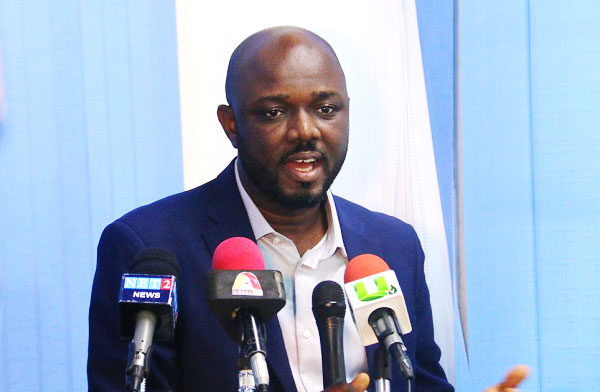Benjamin Boakye
Management of the Ghana National Gas Company (GNGC) has responded to some spurious claims by the Africa Centre for Energy Policy (ACEP).
This follows ACEP’s opposition to a new decision by government to make the Ghana Gas Company the national gas aggregator, arguing for the restoration of the Ghana National Petroleum Company (GNPC)’s role as the gas aggregator, but eventually concludes with a recommendation that GNGC should be made a subsidiary of GNPC.
ACEP premised its argument on the Gas Master Plan and GNPC’s “Balance Sheet” to support its recommendation as contained in a recent publication.
Even though management of GNGC considers ACEP as a respected think-tank, it thinks this is certainly not their best presentation.
In an interview with DAILY GUIDE, Communications Director at Ghana Gas, Ernest Owusu Bempah, noted that “it is important not to base lasting policy decisions, including institutional arrangements, just on ability to finance new facilities or expansion of existing ones or someone’s Balance Sheet as suggested by ACEP.”
That, he said, was because Ghana’s gas industry was still riddled with legacy debts and that Ghana Gas was owed the most among government agencies, a circumstance he described as unusual.
In that regard, he insisted “ACEP should be providing ideas to address this recurring legacy problem in the sector, instead of espousing to short sighted bandied solutions.”
Issues
He recalled how in October 2014, the then Minister of Finance, in his budget presentation to Parliament, announced the merger (marriage) of GNPC and GNGC.
The primary reason presented by the Minister to Parliament according to him, was to enable GNGC use GNPC’s Balance Sheet to facilitate access to capital for any future expansion of its facilities.
But Owusu Bempah indicated that the then Board Chair of GNGC, publicly denounced the merger and never signed off on it; and together with other board members resigned.
This was over two years before the government changeover in Dec 2016 and the completion of the Gas Master Plan.
“Since the marriage of convenience, the primary objective of financial support was not realized; not even in the form of minor working capital, GNGC relied on its own Internally Generated Funds (IGF) for working capital and has been using different commercial vehicles to finance expansion projects,” he revealed.
In effect, he noted that up to date, there had been no functional or financial relationship between GNPC and GNGC, to justify the merger.
Following the Minister of Finance’s presentation to Parliament (in October 2014), he noted that the Minister of Energy, followed with a directive in April 2015, designating GNPC as the Gas Sector Aggregator, in which capacity GNPC was to be the sole buyer and seller (and therefore the sole shipper) of bulk natural gas, and was to enter into all upstream and downstream agreements in the discharge of its duties.
The Minister of Energy was said to have further directed that BOST be made the pipeline operator in the country, and was issued the license by the Energy Commission accordingly.
“So essentially, the then Minister of Finance made GNGC a subsidiary of GNPC in October 2014; and the then Minister of Energy made GNPC the gas aggregator in April 2015. All this happened before the Gas Master Plan was completed in December 2016,” he emphasised.
In effect, he said “we had a disintegrated Gas Sector – part was with GNPC, part with BOST and part with GNGC.
Current position
In October 2017, however, he noted that President Akufo-Addo took the first step towards integrating the Gas Sector and appointed new Board of Directors for GNGC with no representation from GNPC, whiles the National Gas Transmission Utility (NGTU) licence was also reissued by the Energy Commission to GNGC, and withdrawn from BOST.
The Ministry of Finance was said to have subsequently transferred GNGC’s entire share to the Ministry of Finance (now transferred to SIGA).
He revealed that “since March 2017, Ghana Gas Engineers & Technicians assumed full operatorship of all infrastructures—saving the country GH¢15million a month in operation cost.”
To ACEP’s claim that the expansion of the Gas Processing Plant was six years behind schedule, he said “that simply cannot be possible; even the first plant, currently in operation, was commissioned 5 years ago (April 2015)” and quizzed “how can the second plant be 6 years late?”
The Communications Director of Ghana Gas therefore asked ACEP to work with all stakeholders in the development of the Gas Sector and provide any meaningful suggestions they have to the appropriate ministry.
By Charles Takyi-Boadu


